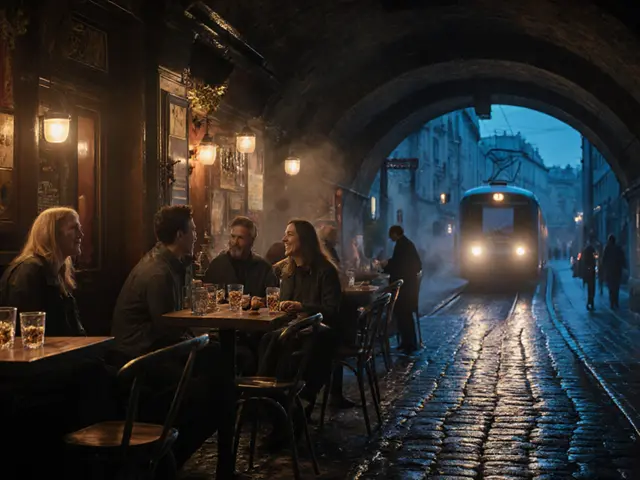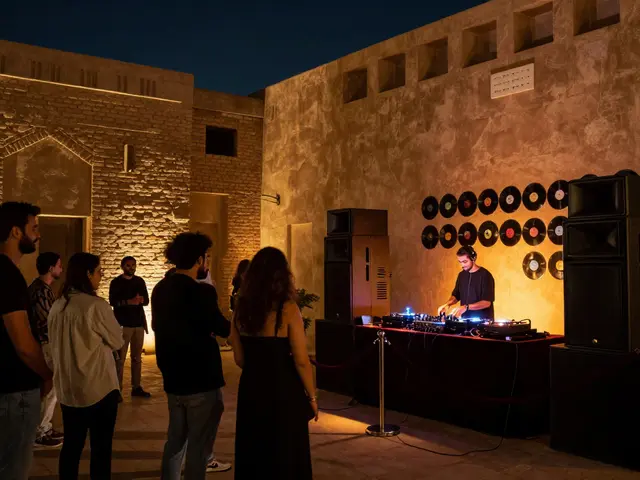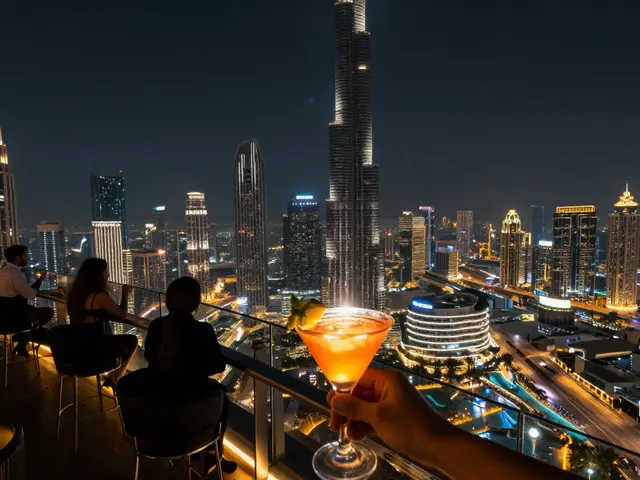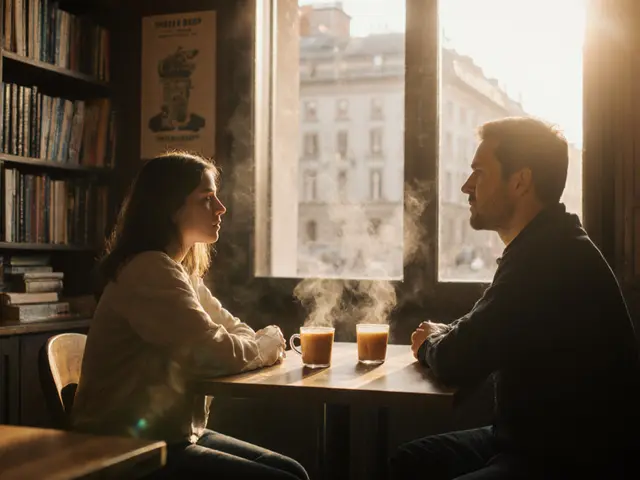Paris isn’t just about the Eiffel Tower and croissants-it’s one of the most vibrant LGBT capitals in Europe. By 2025, the city’s queer nightlife has grown into a dynamic, diverse ecosystem that blends historic safe spaces with cutting-edge venues. Whether you’re looking for a drag show, a techno dance floor, or a quiet cocktail bar where you can be yourself, Paris delivers. And unlike some cities where queer nightlife is concentrated in one neighborhood, Paris spreads its energy across multiple districts, each with its own flavor.
Le Marais: The Heartbeat of Parisian Queer Life
Le Marais has been the epicenter of LGBT life in Paris since the 1980s. Walk down Rue des Rosiers or Rue Sainte-Croix-de-la-Bretonnerie after dark, and you’ll find a mix of generations, identities, and vibes. Le Refuge is a staple-open since 1995, it’s one of the oldest gay bars in the city, known for its friendly crowd and cheap drinks. It’s not flashy, but it’s real. Locals come here to unwind after work, chat over wine, or meet someone without the pressure of a dance floor.
Just a few steps away, Le Depot turns into a high-energy club on weekends, with DJs spinning everything from disco to house. The crowd here is young, diverse, and unapologetically queer. On Friday nights, it’s packed. On Sunday, it’s quiet, and the bartenders will still remember your name.
Don’t miss La Dame de Canton, a lesbian-owned bar with a cozy, lived-in feel. The walls are covered in art from local queer artists, and the playlist leans toward indie pop and 90s R&B. It’s the kind of place where you might end up in a 3 a.m. conversation about French cinema or the politics of drag.
Château Rouge and the Rise of Inclusive Spaces
Outside Le Marais, a new wave of queer spaces is emerging. In Château Rouge, near Gare du Nord, you’ll find Le 7 Lézards, a bar that’s become a magnet for Black and Afro-Caribbean queer communities. It’s not just a nightlife spot-it’s a cultural hub. Monthly events include poetry slams, queer film nights, and open mic nights that draw artists from across the city. The vibe here is warm, loud, and full of pride.
Just down the street, Le Bar des Poètes offers something rarer: a space where queerness, art, and activism intersect. The decor is minimalist, the lighting is dim, and the drinks are crafted with care. You’ll find poets reading, activists organizing, and strangers becoming friends over shared stories. It’s not a club, but it’s just as important.
Drag, Dance, and the Underground Scene
If you want to dance until sunrise, head to La Belle Équipe in the 10th arrondissement. This underground spot doesn’t advertise much-it’s more word-of-mouth than Instagram. But on Saturday nights, it transforms. Drag queens like Madame X and Lord Léon take the stage with jaw-dropping performances that blend satire, music, and sheer charisma. The crowd? Mixed, loud, and fully immersed.
For techno lovers, Le Palace (yes, the same name as the legendary 80s venue, now reimagined) hosts monthly queer nights with international DJs. The sound system is massive, the lighting is hypnotic, and the dress code is “be yourself.” No bouncers check IDs for gender. No one asks why you’re wearing heels or a leather harness. You just dance.
And then there’s Le Bar de la Lune, tucked away in a basement near Place de la République. It’s tiny, dim, and often overlooked. But every Wednesday, it becomes Les Nuits de la Lune-a queer cabaret night with live singers, burlesque, and audience participation. It’s not polished. It’s messy. And that’s why people keep coming back.
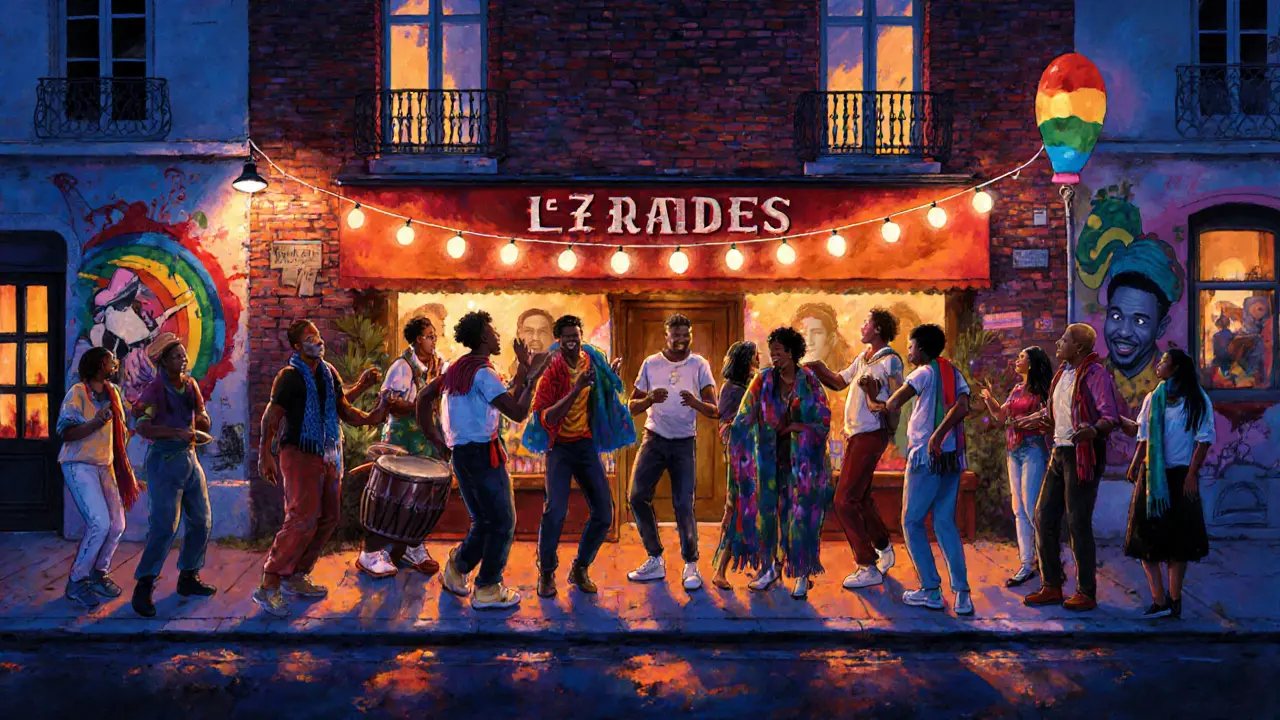
What to Expect: Safety, Language, and Local Etiquette
Paris is generally safe for LGBT visitors. The city has strong anti-discrimination laws, and most venues are welcoming. But like any big city, you’ll encounter the occasional drunk tourist or out-of-touch local. The key? Trust your gut. If a place feels off, leave. You’re not obligated to stay anywhere that makes you uncomfortable.
Language isn’t a barrier. Most staff in LGBT venues speak English. But learning a few phrases-“Bonjour,” “Merci,” “Où est la salle de bain?”-goes a long way. Locals appreciate the effort.
And here’s a tip: Parisians don’t always say “I’m gay” or “I’m trans” out loud. Identity is often shown through behavior, style, and presence-not labels. Don’t assume someone’s orientation based on how they dress. Be curious, not intrusive.
Seasonal Events and Annual Highlights
Paris celebrates its queer community year-round, but some events are unmissable.
- Mardi Gras Paris (late February): A massive parade through Le Marais with floats, dancers, and thousands of participants. It’s not just a party-it’s a political statement.
- Paris Pride (June): One of Europe’s largest pride marches, ending at Place de la République. The after-parties stretch into the next day.
- Festival des Libertés (October): A queer film and arts festival that screens work from across the globe. Many screenings are followed by Q&As with directors.
- Les Nuits de la Ville (September): A citywide queer nightlife festival with pop-ups in bars, galleries, and even public parks.
If you’re visiting in summer, don’t miss the open-air parties at La Villette. The city turns an old industrial site into a queer beach club with DJs, hammocks, and cocktails under the stars.
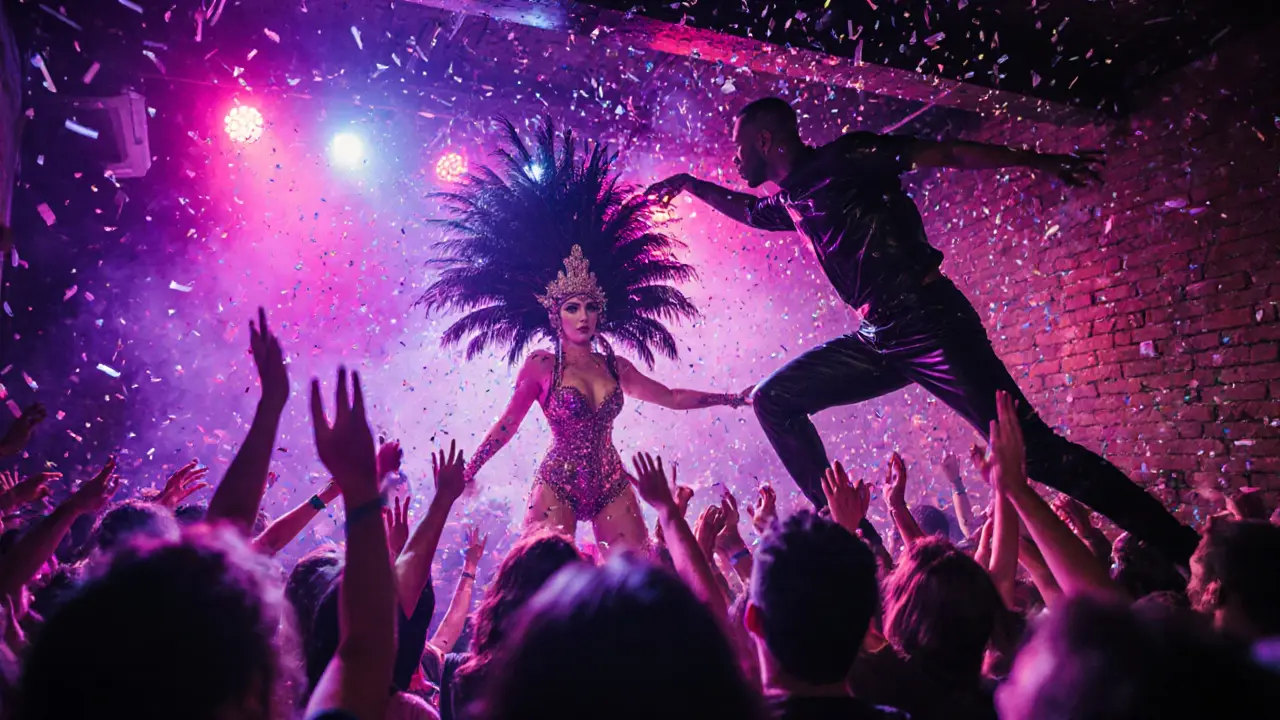
Where to Stay: Queer-Friendly Accommodations
Staying in Le Marais is ideal. Hotel La Perle is a boutique spot with rainbow linens and staff who know every queer bar in the neighborhood. Le Relais Saint-Sulpice is a bit farther but has a rooftop terrace and a reputation for being LGBTQ+ friendly.
For budget travelers, Generator Paris has private rooms and a social vibe. Their Friday night mixer often includes queer guests from around the world.
Final Tips: How to Make the Most of Paris’s Queer Nightlife
- Start early. Many bars open at 8 p.m., but the real energy kicks in after 11 p.m.
- Check Instagram or Facebook events. Many smaller venues don’t have websites.
- Bring cash. Some bars, especially underground ones, don’t take cards.
- Don’t expect “gay bars” to be labeled as such. Look for crowds, music, and energy-not signs.
- Ask locals. Parisians love sharing their favorite spots-if you show genuine interest.
Paris doesn’t just tolerate queer people-it celebrates them. The nightlife here isn’t a tourist attraction. It’s a living, breathing community. And if you show up with an open heart, you’ll find more than a party-you’ll find a home, even if just for a night.
Is Paris safe for LGBT visitors at night?
Yes, Paris is generally very safe for LGBT visitors, especially in areas like Le Marais, the 10th arrondissement, and around Place de la République. Police presence is visible during major events, and most bars and clubs have zero-tolerance policies for discrimination. Still, avoid poorly lit side streets late at night, as you would in any major city. Trust your instincts-if a place feels off, leave.
Do I need to speak French to enjoy LGBT nightlife in Paris?
No, you don’t need to speak French. Most staff in queer venues speak at least basic English, and many are fluent. Signs, menus, and playlists are often in English too. But learning simple phrases like "Bonjour," "Merci," and "Où est la salle de bain?" helps build rapport. Locals appreciate the effort, even if you stumble over pronunciation.
Are there lesbian-friendly venues in Paris?
Absolutely. La Dame de Canton in Le Marais is a lesbian-owned bar with a warm, artsy vibe. Le 7 Lézards in Château Rouge hosts regular lesbian and queer women nights. For dancing, check out Le Palace’s monthly queer events-they’re intentionally inclusive. Many venues don’t label themselves as "lesbian-only," but you’ll find strong female and non-binary representation at most queer spaces.
What’s the dress code for Parisian queer clubs?
There’s no strict dress code. Parisians value individuality over uniformity. You’ll see everything from leather and glitter to jeans and sneakers. At La Belle Équipe or Le Palace, bold outfits are encouraged. At quieter bars like Le Refuge, comfort is key. The rule? Be yourself. No one will judge you for wearing heels, a suit, or a hoodie.
Are there transgender-inclusive spaces in Paris?
Yes. Paris has one of the most visible trans communities in Europe. Le Bar des Poètes and Les Nuits de la Lune regularly feature trans performers and hosts. Many clubs have gender-neutral restrooms, and staff are trained in inclusive language. Organizations like Transgenre France host monthly meetups that are open to visitors. You won’t be asked about your gender identity-you’ll be welcomed as you are.
If you’re planning a trip, aim for late spring to early fall. The weather is mild, the nights are long, and the energy is electric. But even in winter, Paris’s queer heart never stops beating. Just grab a coat, find a bar, and let the city surprise you.

